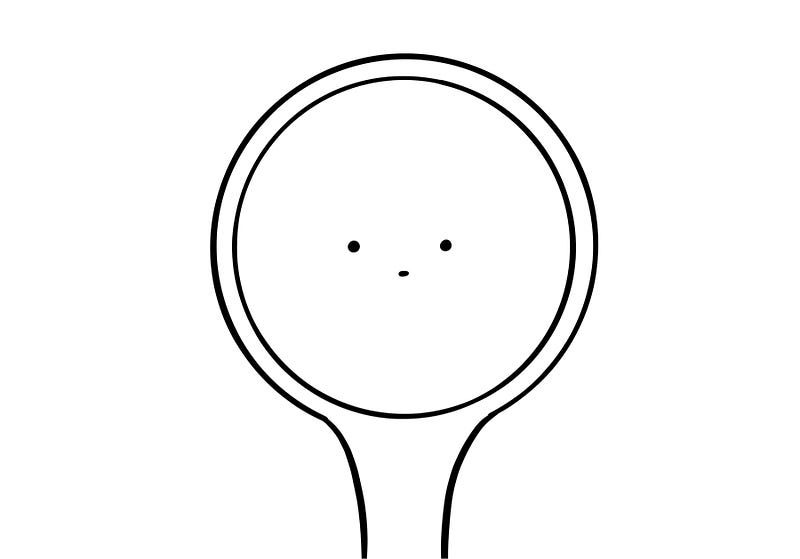A Deep Dive into "Sapiens": Unpacking Its Profound Ideas
Written on
Chapter 1: The Impact of "Sapiens"
It has been two weeks since I finished reading “Sapiens: A Brief History of Mankind,” and during this period, I've experienced a bit of an existential crisis. This book pulls you in and keeps you engaged until the very last page.
Initially, I was put off by the book's size, feeling an instinctual urge to shy away from it. However, I’m grateful I resisted that impulse because the content proved to be anything but tedious.
After completing a good read, my favorite pastime is to discuss it—typically through a blog post, as I find it challenging to get others to engage in conversation about it in person. One intriguing concept I came across was the question: Is anything truly real?
Well, yes, but only to a certain extent. It may sound exaggerated, akin to a reclusive scientist pondering humanity's decline after years of isolation, but this topic is genuinely fascinating and central to the book. I was taken aback by how far we've evolved beyond our basic biological instincts and how much of our world is merely a product of our collective imagination. Legal systems, corporations, and our moral judgments of right and wrong are not inherently dictated by our biology.
What are the consequences of this realization?
Most animals live strictly within their genetic boundaries—like birds building nests or ants tending to their colonies. While not every creature is confined solely to its DNA, humans stand out in their ability to transcend these limitations. We create “myths” or, in more academic terms, “inter-subjective realities” that enable us to collaborate in large groups, which has allowed our species to flourish rapidly.
Despite being non-existent on an objective level, these constructs can be incredibly beneficial. Take money, for instance: it may seem irrational that we would fight over pieces of paper, but our collective belief in “money” allows us to engage in trade and cooperation. The vast majority of currency today exists only in digital form, and many currencies have long since ceased to be linked to gold. Even the gold standard is somewhat of a construct; while it holds aesthetic value, it’s not the most practical material. The Aztecs might have thought the Spanish Conquistadors were mad for their obsession with gold.
Our shared belief in money enables commerce, fostering rapid human development. Trust in currencies allows us to trade with people from different backgrounds and cultures, an advantage over the cumbersome barter system.
But what about our notions of right and wrong? There is no definitive ‘morality gene.’ This absence is a significant reason for the various conflicts around what constitutes objective truth. Concepts that are not dictated by biology, physics, or chemistry can be influenced by the cultural, economic, and political contexts of those who assert knowledge of objective truth.
Our legal systems and moral frameworks are essentially myths designed to guide human behavior.

Chapter 2: The Evolution of Thought
One insightful video discussing the book is titled "Sapiens: A Brief History of Humankind (Book Club, July 2017) - YouTube." It delves into the core themes of the book and how they resonate with contemporary societal issues.
Another thought-provoking video, "Is Sapiens an Unoriginal Book? - YouTube," critically examines the originality of the ideas presented in "Sapiens" and their significance in today’s world.
As we consider our current trajectory, it's essential to remain open-minded about our evolving definitions of truth. What we believe to be right today could easily be seen as outdated by future generations. This perspective helps us analyze history more compassionately, understanding that many past injustices, like slavery and witch hunts, were accepted norms shaped by their socio-political context—much like our current attitudes toward practices like factory farming.
Recognizing how briefly we have existed on this planet and how recent our current ideologies are can foster a more adaptable mindset. This understanding opens doors to change that aims at enhancing humanity's collective well-being.
But what constitutes the betterment of humanity?
While I don't claim to have all the answers, I believe that our goal should be to evolve in ways that minimize suffering for both humans and animals. The challenge lies in being selfless and motivated enough to extend help beyond ourselves.
And with that, I’ll wrap up before I diverge too far from the topic at hand. If you found this post engaging, you might also enjoy the upcoming content on my new YouTube channel, SMETZEL STUDIOS. It will feature a mix of lively animations and insightful discussions inspired by the books I read.